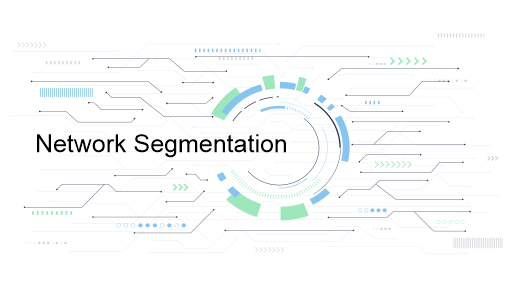Businesses today are still struggling to get a grip of their IT environment and secure their systems, networks, and infrastructure against potential threats and vulnerabilities. More so, in the Payment Card Industry where organizations are trying to understand the best practices to protect their system from risk and vulnerabilities.
The PCI Security Standards Council has provided a comprehensive guide for PCI DSS Scoping and Network Segmentation that suggests strategies organizations need to implement to simply prevent hackers from breaching your systems and accessing sensitive and confidential consumer card payment information.
In today’s article, we have explained how Network Segmentation benefits organizations in securing their data and also ease their PCI DSS Compliance process. But, before we get straight into learning the benefits, let us first understand the concept of Network Segmentation and learn for whom is it really beneficial.
What is Network Segmentation?
Network Segmentation is a process of dividing your network into different segments to separate the card computing process including processing, transmission, and storage of card data. To simply put, it is a practice that divides the larger computer network into several small sub-networks, each isolated from one another.
This division is based on risk profiles of the assets. This strategy helps secure sensitive information that is passed throughout the network. So, for instance, if a hacker breaches one part of the network with no card data for eg the web server, he will still have no access to the sensitive cardholder data, since a breach or hack into one part of the network will not compromise other parts of the network if they are segmented or rather isolated from each other.
The hacker will have no access to the database with payment card information unless he plans to break out each segmented network to get through to the resources he wants.
Who benefits from Network Segmentation?
For organizations dealing directly or indirectly with card data, be it small, medium, or large scale organizations, Network Segmentation is recommended for all. Given below is a list of entities that may benefit from Network Segmentation-
- Merchants, Service Providers, Card Issuers, and other parties who fall in the scope of PCI DSS Compliance.
- Assessors including the External Quality Assurance Assessors or the Internal Security Assessors.
- Acquirers evaluating Merchants’ or Service Providers’ PCI DSS Reports concerning Compliance and Self-Assessments.
- PCI Forensic Investigators (PFI) performing official investigations.
- Consumers who entrust their data with Merchants and other Service Providers.
What are the Security & Compliance Benefits of Implementing Network Segmentation?
In today’s complex and harsh security threat landscape, organizations will have to assume that they will be breached at some point. However, Network Segmentation is a strategy that helps tackle or address security threats and breaches.
Implementing Network Segmentation makes it more difficult for an attacker to penetrate a segmented network and access sensitive card data. It also secures your organization from insider threats, as it isolates sensitive card data and systems securely. From a Security and Compliance standpoint Network Segmentation is the best practice for organizations to adopt and implement.
Elaborating more on this, we have listed out a few benefits for your learning.
- Improves Network Security – Network traffic can be isolated or filtered to prevent unauthorized access to sensitive data. Network Segmentation limits access between each network segment, making it difficult for hackers to penetrate.
- Malware Control – Since networks are isolated and traffic filtered on a need basis typically through a firewall with threat management features, even if there is a virus/malware outbreak, it will be contained and not spread rampantly across the entire network.
- Improved Access Control – Network Segmentation does not just filter the traffic and limits access to only authorized users, but also limits access to only the specific network required by the authorized user.
- Improved Monitoring – The segmentation practice provides an opportunity to log events, monitor access, limit internal connections, and detect suspicious behavior of only critical and required segments.
- Improved Performance – With Network Segmentation, the local traffic can be minimized, while the broadcast traffic can be isolated to the local subnet.
- Better Containment of Incidents- In case of a breach or an occurrence of a network issue, the situation can be dealt better. This is simply because the networks are isolated from each other and so the effect of an incident or error will be limited to that specific sub-network.
- Compliance Requirements – PCI DSS Guidelines does not mandate Network Segmentation, but strongly recommends the same to reduce the data footprint in the organization thereby reducing scope. So, implementing this will help your organization meet PCI DSS Compliance Standard requirements.
Conclusion
The bottom line is that, despite all efforts of implementing various security measures, if the organization does not implement the Network Segmentation strategy, it is highly possible that this will lead to hackers hacking into their most vulnerable assets and then access sensitive card data.
No matter whether your organization is exposed to internal or external threats, Network segmentation provides a comprehensive insight into the network, giving an additional layer of defense against both insider or external threats.

